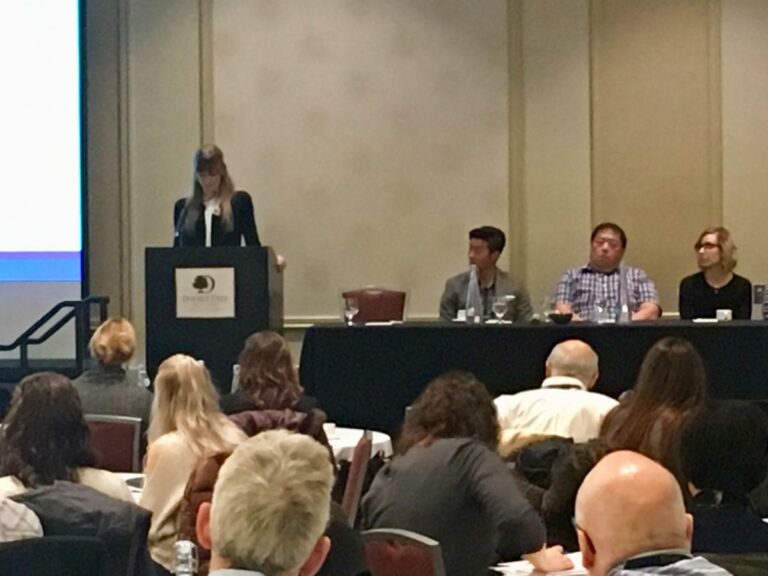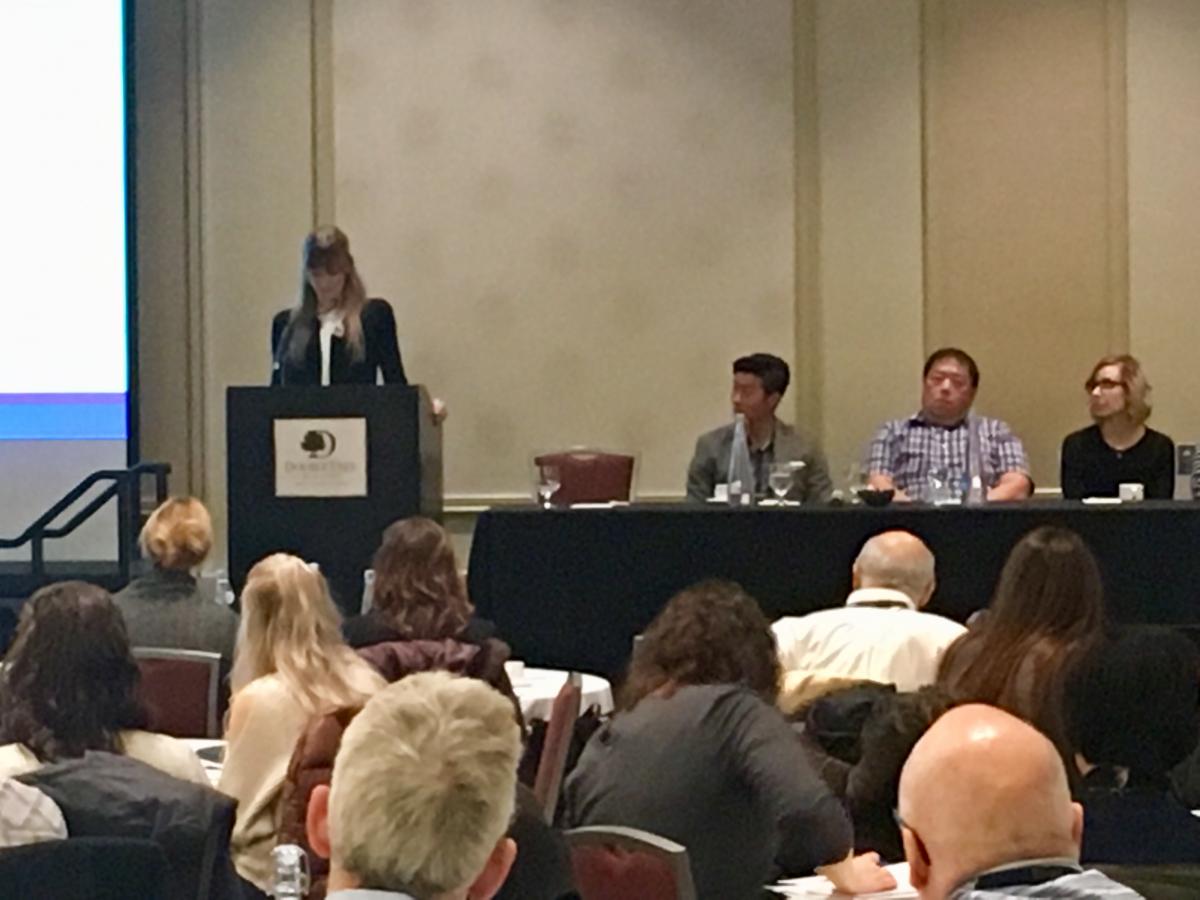
“In one year, he became a fragment of his former self…he was scared and didn’t want to die.”
Tragically, Rosalind Davis’ partner, Nathan did die from an opioid overdose. Now, Rosalind is speaking out, hoping to educate others after her own experience of feeling lost and helpless while trying to cope with a partner’s addiction. She started an advocacy group called Changing the Face of Addiction to help others understand addiction.

Rosalind spoke at a recent professional development course in Edmonton, coordinated by the Alberta Pharmacists’ Association (RxA) in collaboration with the Alberta College of Pharmacists (ACP). The program was designed to help pharmacy professionals develop strategies to better engage with individuals using opioid medications. Rosalind feels there’s a lot of shame and stigma involved in the process, “pushing people into the shadows that they don’t feel safe reaching out for the help that they need and the help that they deserve.”
Rosalind believes that conversations are crucial because, in her view, most of society has false information. “I think that if I had been equipped with accurate information we would have been able to have some different conversations and maybe there would have been a different outcome,” she said.
Presenter Cathy Biggs encouraged learners to think of ways to start conversations about addictions, and how to use language that is not judgmental. Through an informal poll, many attendees indicated that they find it difficult to initiate discussions about addiction with patients.
The session was planned in response to feedback from pharmacy professionals and the public after ACP implemented guidelines for assessing individuals using opioid medications. Panelists also spoke about how to deal with barriers and challenges pharmacy professionals face when assessing and providing care to those using opioids.
The benefits of positive interventions were illustrated in an anecdote from Stan Dyjur, President-Elect, ACP Council. He spoke about an 80-year-old patient who had been disowned by her family due to her opioid use. Through an assessment and efforts to build a professional relationship, Stan determined he could lower her dosage and eventually she was able to reconnect with her family. This is an outcome that might not have happened without an initial assessment and follow-up.
The session format included case studies and discussions that showed how each patient deserves a treatment plan unique to them. As Rosalind wrapped up her presentation, she stressed one point: “What matters is making their life better.”




